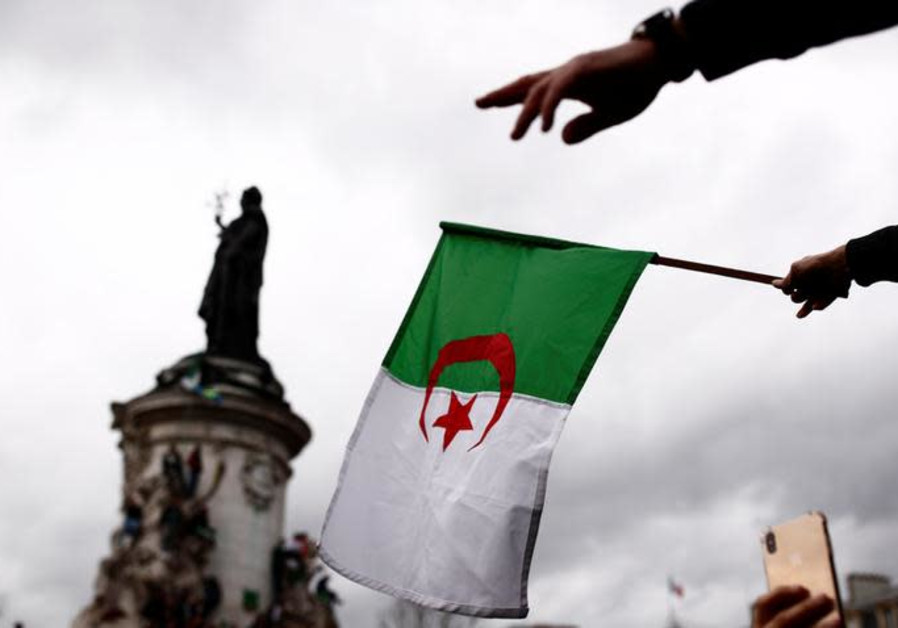Algeria releases blogger jailed for interview with Israel

A demonstrator waves an Algerian flag. (photo credit: REUTERS/CHRISTIAN HARTMANN)
#Algeria: CPJ welcomes the release of blogger Marzoug Touati, who was finally freed today after spending over two years in jail. https://t.co/MzIoJzffmy
— CPJ MENA (@CPJMENA) 4 במרץ 2019
Join Jerusalem Post Premium Plus now for just $5 and upgrade your experience with an ads-free website and exclusive content. Click here>>






Comments are closed.